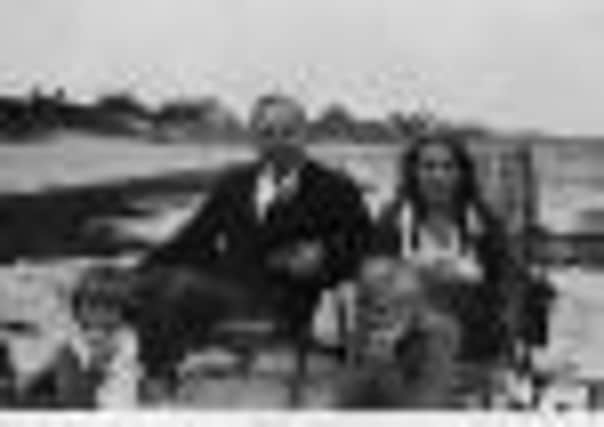A remarkable man, who was also a rebel


She vaguely knew that he had once been one of the most famous men in Britain; it was only later that she found out why.
Claud Mullins: Rebel, Reformer, Reactionary is the title of her new biography of the man - a title which does justice to a remarkable character.
Advertisement
Hide AdAdvertisement
Hide AdBorn in 1887, Mullins, who spent the final years of his life at Graffham, died at the age of 81 in 1968. Emma was 14 at the time.
“I spent so much time at my grandparents’ house in Graffham, but I don’t really remember him that well. My parents were doctors and they were training. We were dumped with my grandparents for a long time when we were very young, but my grandfather didn’t really like us there.
“He was quite old by them and didn’t particularly like young children. We didn’t care. It was just a wonderful place. My grandmother was much younger and much more active. He was rather elderly and rather grumpy. I wasn’t interested in him. I knew he had been something important in the past, but to me he was an old relic.
“But actually, he hoped that somebody would write a book about him one day. He kept all his papers, and my grandmother clearly also hoped someone would write a book because she looked after all the papers he had.”
Advertisement
Hide AdAdvertisement
Hide AdEmma herself rose to the challenge. Legal historian Stephen Cretney spoke to the family when he was writing Mullins’ entry for the Oxford Dictionary of National Biography. Emma began to see that a book was worth writing.
“My grandfather was a stipendiary magistrate in London. He was a very ambitious man and really felt that he ought to make his mark in life. He got the job as a magistrate in 1931, and he was just so pleased to get it. A lot of people were out of work - and he set about it with tremendous zeal.
“He visited prisons and borstals and talked to everybody he possibly could about crime and criminals. He was very up on Freud. He was very interested in psychology and the causes of crime, and he started to make changes in his own court.
“He was shocked that marital disputes would come to magistrates courts and ask for a spearation order. He was appalled to see that they were all bunged together with the criminal cases and that there was an adversarial system. The wife would be saying ‘You are a brute’; the husband would say ‘You are a nag.”
Advertisement
Hide AdAdvertisement
Hide AdHis response was to separate the family courts from the criminal courts: “And he tried to make it harder for nosy neighbours to come and listen to it all. He believed that all marriages could be saved. He was known in the tabloids as the marriage mender. He thought most marriages were in trouble because of sexual ignorance and lack of decent behaviour to each other. He was appalled that the churches denied birth control to working-class people. He thought one of the problems was that they had more children than they could cope with. He thought that one of the main causes of crime was lack of love in the home. He wrote a lot about it. He was a great one for wanting to get the law changed. He introduced conciliation between warring couples.”
On the crime front, he refused to send anyone under 20 to prison: “He was regarded as eccentric, but very very humane.”
He could also be very rude: “When he retired, somebody said that he was the rudest man in Sussex.”
Emma suggests, though, that in retirement he was simply bored. He had retired early and clearly missed the intellectual stimulation that his work had brought him.
Advertisement
Hide AdAdvertisement
Hide AdEmma suspects he would be delighted now to see his life commemorated - though she believes he wouldn’t be best pleased at some of the more personal details about his own marriage that she has felt it appropriate to include in the biography.
Her belief is that in his work on marriage there was a degree of sublimation going on, a reaction to his own domestic problems.
Claud Mullins: Rebel, Reformer, Reactionary is published by Hornbeam Press (ISBN-10: 0956523609; ISBN-13: 978-0956523600) and is available from Amazon.